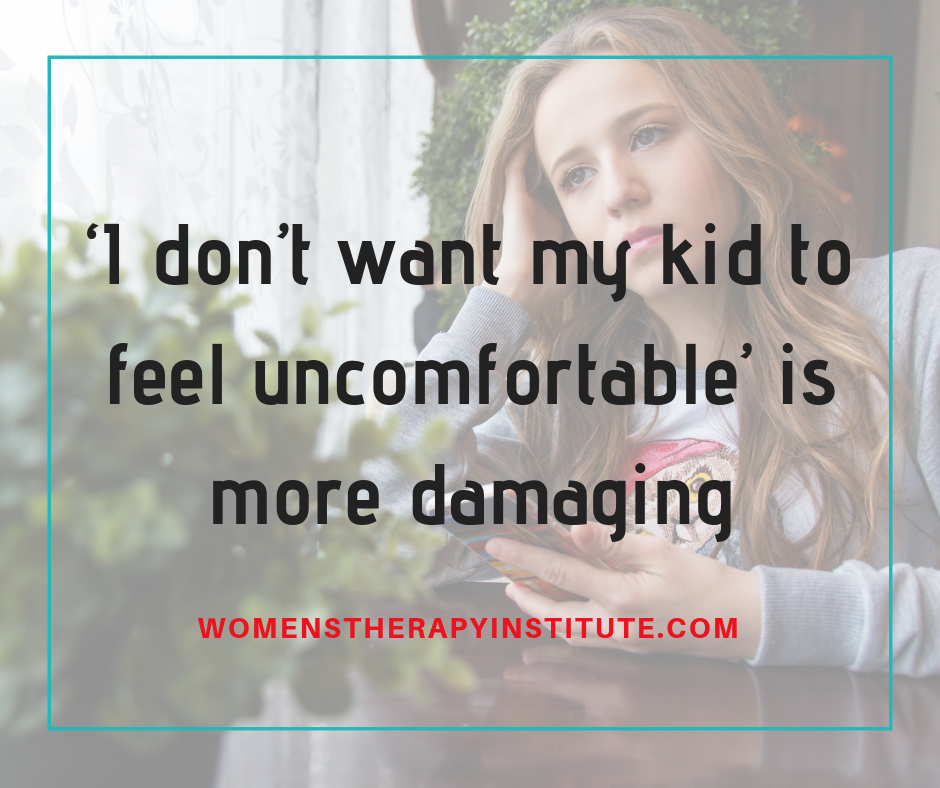
‘I don’t want my kid to feel uncomfortable’ is more damaging
When doing therapy with teens, I often hear from parents that they don’t want their “kid to feel uncomfortable.” They do want their teen to learn how to relax, to be less anxious, to cope with their feelings. But, they don’t want uncomfortable topics to come up. They shy away because they think they are protecting their child.
Parents often ask why I would approach uncomfortable topics in therapy. The truth is we don’t want to discourage these topics from being talked about. When we avoid these things, we are sending the message to our kids that they can’t come to us to express themselves. It makes them want to protect us, adults, since we are the ones uncomfortable talking about these things.
Our teens need to know that they have a place to come and talk and share their experiences, their fears, their worries. They don’t need to learn the courage to talk about these subjects. They need to have the courage to tackle them.
Uncomfortable things happen to everyone. We all think things, worry about things and are faced with things that are confusing, stressful, and awkward to share. Our teens especially are faced with these situations because they are in an awkward growth period of their lives. With a lot going on in friendships, relationships, and themselves. They need to feel safe to approach these topics so they can come up with healthy solutions to tackle them. By discouraging the discussion of things because they are “uncomfortable” we are forcing our children to go elsewhere for solutions or to keep it all trapped inside.
